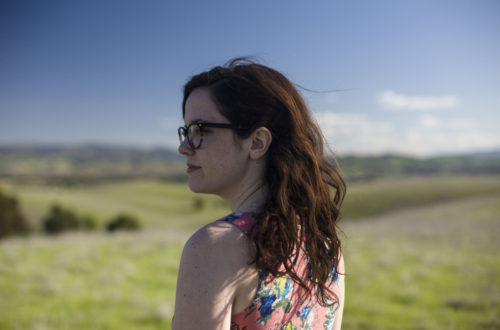
Letters to Emma #3
This is the third in a series of posts I plan to write about grief and my experience of it after the death of my husband Paul 4½ years ago. I will write each post in the form of a letter—a letter to Emma. I’m doing it this way for two reasons: visualising an audience of one will help me to write about what is still a difficult subject, and Emma was the one who first asked me to consider writing something on this topic. It’s my hope and prayer that by blogging about my personal experience of death and grief, I might ease the journey for someone else.
Hello again, Emma
I really appreciate your willingness to stick with me as I recount my experience of grief. It’s slow, exacting and painful, and it will never be a light read, so your perseverance is a great comfort to me. Thanks, dear friend.
So far, I’ve told you about the immediate effects of grief as I first began to struggle with the stark reality and intense aftermath of Paul’s death. Once I began to move out of survival mode and re-enter normal life—whatever that might be—I soon realised that the world had continued on its way, unflinching and unperturbed by my loss. It kept going for a brief time without me and now it would do so forever without Paul. The more time passed, the more things changed, and the less the world remained the one my beloved had left behind. Time propels us forwards, not backwards, so each moment and each increment of change emphasised the relentless distance opening up between then and now, between him and me.
But I was still alive, with grieving children to care for and a checklist of tasks to accomplish. (I won’t say much about what it was like for my kids—that’s their story to tell, not mine.) I simply had to get back to doing life.
Paul’s death and my changed status—from wife to widow—produced a crowd of practical matters that now clamoured for my attention. Suddenly I had to prove things: that Paul had died, that he’d made a will, that he’d been born, that we’d been married, that I was who I said I was. So much paper, so many forms.
And I had to get used to telling complete strangers that my husband had just died, each time preparing for awkward pauses or insensitive responses. Most people seemed genuine and readily expressed their sympathy—the woman in the health fund office burst into tears when I explained the reason for my visit—and I can remember only one telephone caller who sympathised by sharing how he felt when his dog died.
Actually, it was much harder telling friends and acquaintances who hadn’t yet heard about Paul and so each venture into my neighbourhood was fraught with unknowns. What if I met someone I knew? What would I do? Would I even be able to speak? The first time I went for a walk I was overwhelmed by an intense, irrational fear that people would be able to see that I had just lost my husband, just by looking at me. And going to the local shopping centre where I was bound to meet people I knew, I felt wide open and unprotected—how would I know whether the next person I met in the supermarket aisle had heard my sad news, or not? I learned to be prepared for anything: to be willing to talk about my sorrow in a public space (and not be afraid of tears), to face the fallout if I had to tell others about Paul, to understand and accept if people avoided me.
I missed two Sundays at church and then forced myself to return—I thought it would only get harder the longer I stayed away. How grateful I was for beloved friends who, sensing my vulnerability, walked with me into church and formed a posse around me for the first few weeks, providing a physical buffer that gave me a little more control over my interactions with others. Emma, it wasn’t that people were unthinking or unkind; as I’ve mentioned before, ours is a large church family and I needed time and space to adjust. With grace and generosity they granted me this gift and blessed me further in many practical ways, reminding me over and over of God’s deep and abiding love—something I will never forget.
I began a long lesson in living one day at a time, discovering why Jesus taught his disciples to ask their Father in heaven for daily bread. A slow but desperate student, I began practising in earnest the discipline of trusting God for today and depending on his provision for today. Early on, it was sometimes all I could do to trust him for the next hour as I drew on strength I did not have and found courage that was not my own.
The difficulties and anxieties did not lessen in number for a very long time, but as I trusted him, they were the very things he used for my good. In the midst of extremity, I began to understand the rich blessing of utter dependence on God. Only he knew if I would be here tomorrow; only he determined the length of my life. And all he required of me was to live for him faithfully where I was now, and to not worry or catastrophise about the future. Of course I needed to make plans, but I could also sit light to them, holding the gift of each day with open hands, not in clenched fists clutched tightly against my chest. Emma, although progress was halting and imperfect, I could see the beauty of life lived Deo volente—in surrender to God’s will.
I also began to realise that I was a living, breathing reminder to others of their mortality; by western standards I was relatively young to be a widow—if it could happen to me, then it could happen to my contemporaries too. Our culture does not help us to deal honestly with the certainty of death, and occasionally I sensed that for some people I represented the inescapable, uncomfortable truth that they too one day would die.

For me though, the knowledge that life is short became a reason to say ‘yes’ to things as often as I could, and especially if I was tempted to avoid them or to make excuses. Somehow, this strategy seemed vital to my sanity and survival as I began the single life once more and adjusted to life without my husband. It helped to counteract the bleak finality of closing accounts (bank, social media, email, phone), of removing Paul’s name from documents, of having to prove his death over and over, of deciding what to do with his clothes and possessions.
It also helped me to walk out into the day carrying his ashes after I collected them from the funeral director’s office. There was nothing normal about being told two containers were needed for the remains of his tall, strong body, nothing natural about carrying him, the very one who once loved to snatch me off my feet and into his arms.
Emma, I suppose it’s not hard to understand, but right from the start it was so important to me that I could report the number of days, weeks, months, and later, years that had gone by since Paul’s death. It still is. And as they went by, relentlessly, life took on a distinctive bittersweet flavour and an emotional colour I could only describe as wistful—a soft green, like sunshine seen through the blues. Memories brought smiles and tears, small victories were often solitary celebrations, joys now had sharp edges and pleasures were no longer simple—just complicated. Each new person I met was another person who would never know Paul and a reminder of my calling, to keep living. Without him.
Dear friend, I think there’s still more I want to say, but it can wait for another day. Thanks for sticking with me. It helps, a lot. Until next time.
Featured image: Photo by Kristine | Lightstock.com




